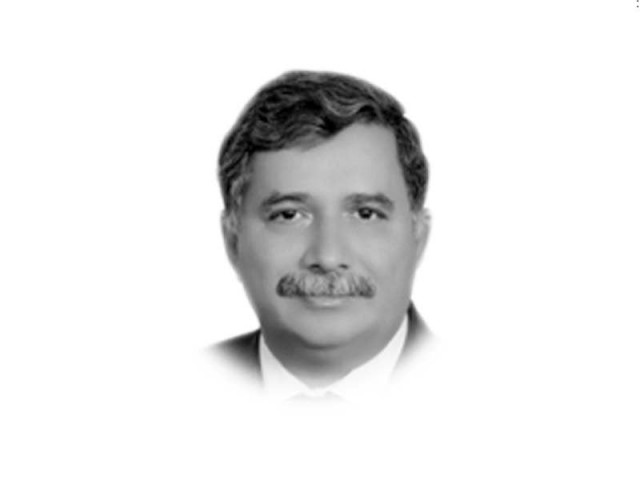Doha Summit and the Mughal parallel
The OIC meetings, including the one in Doha, may be thunderous in words but meek in action

The Arab-Islamic Summit in Doha and its declaration have stirred emotive discussion, many describing the moot as mere rhetoric without any tangible action. Staged in the wake of Israel's attack on Qatar, the meeting carried urgency but poured cold water on expectations of the Muslim world . However, if history is of any guide, it tells us to be cautions and to look deeper. It is important to analyse where we stand and why, and where we want to go and how. Mere grand declarations without strategic foresight lead us now where. It has been the undoing of Muslim powers before — most notably the Mughals who, despite their wealth and might, collapsed for failing to innovate, unite and adapt to a changing world.
In this context, parallel can be drawn from the SM Ikram's book History of Muslim Civilization in India and Pakistan. He mentioned that a number of factors were responsible for what appeared to be the sudden collapse of Mughal authority after the death of Aurangzeb, but the basic cause was one: the inability of the Mughals to keep pace with the rapid, almost cataclysmic, changes taking place in intellectual life, military organisation and the instruments of offence and defence which ensured the stability and prosperity of states.
The intellectual revolution in Western Europe - with its spirit of inquiry, new discoveries and the wide diffusion of knowledge made possible by the printing press - had unleashed forces destined to lead to European domination. Meanwhile, Muslims had been relatively falling back, and with each passing year the distance widened between Europe and Asia in knowledge, organisation, accumulated resources and acquired capacity. It was only a matter of time before a medieval order, however impressive, yielded to the modern.
SM Ikram argued further that the political system that dominated much of the Muslim world discouraged free intellectual growth. Progress not only halted but regressed, producing loss of objectivity, moral courage and intellectual curiosity. Even enlightened rulers failed to see the possibilities of printing. Without the spread of knowledge — impossible without the press - no great society could be sustained.
The scarcity of books bred ignorance, lowered standards of education and narrowed the range of study. As a result, the ruling classes remained uninformed about the wider world, while European statesmen, equipped with penetrating and up-to-date studies of the Mughal Empire, understood India better than its own governors. Since the days of Ain-i-Akbari, little was added to Mughal knowledge of their dominion.
In the same discourse, he deliberated that stagnation in the intellectual field was mirrored in the military. Babur had introduced gunpowder into India, most famously at the Battle of Panipat in 1526, but his successors failed to develop weaponry or organisation. Meanwhile, the West had revolutionised the structure, discipline and equipment of its armies. The Portuguese mounted cannon on ships, opening a new dimension of power that made them masters of the Indian Ocean. Even in the heyday of Akbar, Indian Muslims could not embark on the Hajj without paying the Portuguese for safe conduct. A mighty empire was thus humbled in one of its most sacred duties.
The parallels with today are not out of place to mention. Just as the Mughals once lagged behind and could not match the Europe, the Muslim world now stands stationary while the West has made progress by leaps and bounds, and are far ahead. Despite immense wealth and resources, it reels under intellectual, political and military stagnation, unable to nurture innovation or institution building. The position once occupied by Europe is now held by the United States, which dominates not only militarily but also through technology, knowledge production and global influence. The Muslim world, divided and dependent, risks repeating the same historical mistake: watching passively as others are making strides in all sphere the future.
The OIC meetings, including the one in Doha, may be thunderous in words but meek in action, too often echoing this tragic pattern. Just as Mughal elites relied on outdated institutions while Europe raced ahead in science and technology, today's Muslim leaders rely on rhetoric while the rest of the world invests in artificial intelligence, biotechnology, space exploration and cutting-edge defence systems. Member states speak of sovereignty and solidarity, yet remain dependent on Washington, Beijing or Moscow to safeguard their interests.
To add insult to injury, there is seemingly cold war in the Islamic world: one led by Saudi Arabia and the other by Iran. This intra-Muslim cold war prevents collective action on issues that require unity, from Palestine to scientific advancement. It mirrors the factionalism of Mughal India, where nobles and regional satraps pursued short-term power while the empire crumbled before their eyes.
The lesson is unmistakable. Advancement in knowledge and technology is essential if the Muslim world is to catch up with the West and reclaim agency in global affairs. SM Ikram's analysis of the Mughal decline portrays a clear picture: they fell not because they were poor or weak, but because they failed to innovate, failed to embrace knowledge and failed to build institutions that could withstand the pressures of a changing world.
Suffice to state that "in the history of Homo sapiens, those species which do not adapt to changing environments finally become extinct." The Muslim world if want to survive with honour has to invests seriously in human capital, scientific research and institutional reform, its declarations will remain hollow and its influence marginal. Doha, like many summits before it, will be judged not by the words spoken but by the actions taken afterwards. Without substance, it will be recalled only as another echo of a past already repeating itself.














COMMENTS (2)
Comments are moderated and generally will be posted if they are on-topic and not abusive.
For more information, please see our Comments FAQ